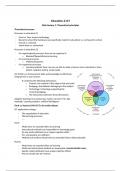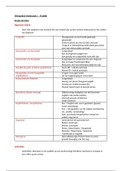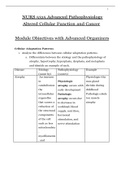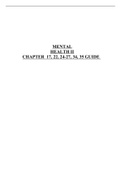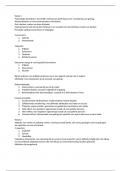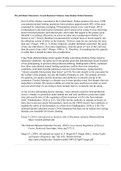Samenvatting
Samenvatting education and ICT; hoorcolleges en hoofdlijnen alle verplichte literatuur
- Instelling
- Universiteit Utrecht (UU)
Dit document bevat de 8 weblectures van education and ict en de hoofdlijnen van de verplichte literatuur. Het document is in het engels geschreven.
[Meer zien]
